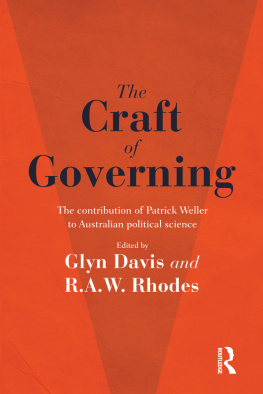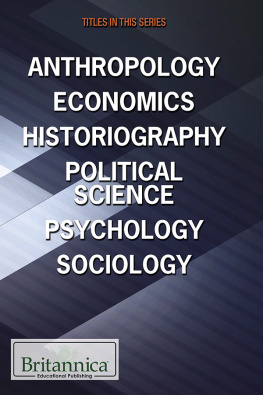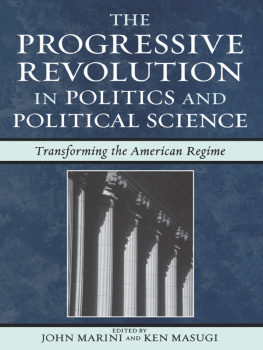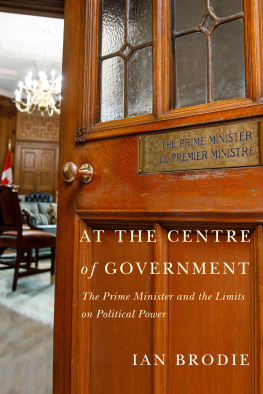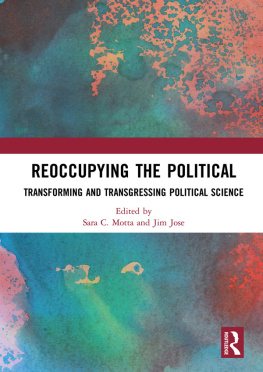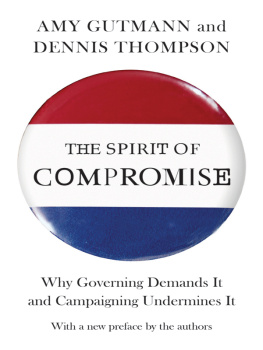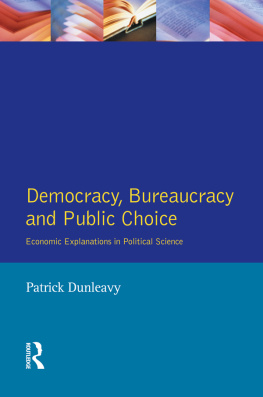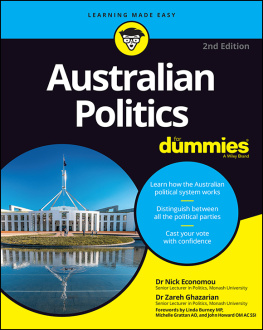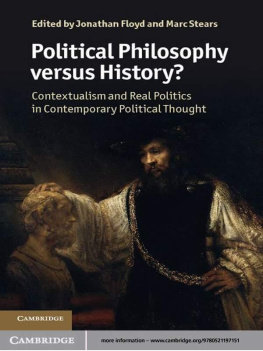First published 2014 by Allen & Unwin
Published 2020 by Routledge
2 Park Square, Milton Park, Abingdon, Oxon OX14 4RN
605 Third Avenue, New York, NY 10017
Routledge is an imprint of the Taylor & Francis Group, an informa business
Copyright Glyn Davis and R.A.W. Rhodes 2014
All rights reserved. No part of this book may be reprinted or reproduced or utilised in any form or by any electronic, mechanical, or other means, now known or hereafter invented, including photocopying and recording, or in any information storage or retrieval system, without permission in writing from the publishers.
Notice:
Product or corporate names may be trademarks or registered trademarks, and are used only for identification and explanation without intent to infringe.
Cataloguing-in-Publication details are available from the National Library of Australia
www.trove.nla.gov.au
Index by Puddingburn
Set in 11/14 pt Berkeley Oldstyle by Midland Typesetters,
ISBN-13: 9781743319307 (pbk)
When it comes to observing the interplay of governing institutions and those who people them, there is a touch of James Bond about Pat Wellernobody does it better. As my tribute to a formidable man and a good friend, Id like to tap into a pair of interlocking themes which were very much a part of the intellectual compost that made us as young postwar Brits who were good at exams; the notion of an Establishment and the rise of the meritocracy (i.e. people like Pat and me who benefited mightily from the ladders of opportunity which dropped down from Rab Butlers 1944 Education Act piloted through Parliament on a consensual basis by the UK World War II coalition government).
It was in the 1950s that the two themes started to fuse. In the early part of the decade, the historian A.J.P. Taylor and the political commentator Henry Fairlie revived the idea of a shadowy yet potent British Establishment which exerted an ill-defined and intangible yet real effect in public, political and cultural life. Writing at much the same time, the historical sociologist Michael Young was working on his The Rise of the Meritocracy which, given the surprising difficulty he encountered in finding a publisher, did not reach the shelves until 1958, and, eventually the pages of the dictionaries as a new social category-cum-concept.
First, that word, Establishment. A slippery term it may be. But its everywherehas been now for decades. Yet its mercurial quality makes cartography near impossible, especially when it is used incontinently and imprecisely as in, Farage revels in shock to establishment, when UKIP enjoyed its surge in the 2013 UK local elections. To lump the Conservative, Labour and Liberal Democrat parties together as the establishment, instead of calling them the mainstream political parties, is absurd.
Some even doubt if the Establishment exists as more than a notion, a convenient piece of linguistic litter to deploy as a weapon of disdain, even denunciation, against individuals or clusters of people whom you dont care for, rather resent and wish to annoy.
Indeed, if the British Establishment does exist, part of me must be part of it. Why? I like clubs, especially the dining variety. I have a fondness for traditional institutions and, when Parliament is sitting, spend a good part of the week in the House of Lords, which many might see as the Establishments debating chamber, canteen, broadcasting service and retirement home all folded into one.
The Establishment notion does matter because, generation upon generation, so many intelligent and not always so intelligent people have thought it does existthough the form it takes mutates and is always and everywhere immensely stretching to capture and define. As Jeremy Paxman, who wrote a good book about it in 1990 called Friends in High Places, puts it: It is a harlot of a word, convenient, pliant, available for a thousand meaningless applications (Paxman 1990: viii).
Yet the Brits have always had a certain idea of the Establishment as an inner track of people who fix things discreetly, unavowedly and unaccountably behind carefully painted camouflage, giving it a whiff of genteel conspiracy, perhaps even with a dash of insider trading in the influence market.
Its a concept that has stalked me for the bulk of my working life and, in return, I have stalked it, especially when I wrote about Whitehall for The Times in the 1970s and 1980s (when I first met Pat). In the mid-1970s, for example, the incomparable David Butler introduced me to his fabled seminar on British government and politics at Nuffield College, Oxford as, The gossip columnist of the British Establishment. I was faintly irritated by this at the timebut had to admit there was something in it.
I acquired my first notion of the British Establishment by reading Anthony Sampsons second edition of The New Anatomy of Britain published in 1965, which I received as a sixth-form prize. In his first edition of 1962, Anthony set out to find it across a huge range of British institutions and professions. He reached an intriguing conclusion. Not only did he dismiss conspiracy theory Anthony declared that:
My own fear is not that the Establishment in Britain is too close, but that it is not close enough, that the circles are overlapping less and less, and that one half of the ring has very little contact with the other half. In particular, the hereditary Establishment of interlocking families, which still has an infectious social and political influence on the Conservative Party, banking and many industries, has lost touch with the new worlds of science, industrial management and technology, and yet tries to apply old amateur ideals into technical worlds where they wont fit. (Sampson 1965)
Anthonys thinking was very much a pre-echo of the theme Harold Wilson made his own when he became Leader of the Labour Party in 1963. Anthony was drawing, too, on that fifties revival of the Establishment notion by the powerful pens of A.J.P. Taylor and Henry Fairlie. Taylor took up the theme in what was then still called The New Statesman and Nation in August 1953 in a review of a new life of William Cobbett, a great denouncer of the Establishment which he called The Thing. Taylors opening paragraph remains, I think, a collectors item. Trotsky, he began,
tells how, when he first visited England, Lenin took him round London and, pointing out the sights, exclaimed: Thats their Westminster Abbey! Thats their Houses of Parliament!... By them he meant not the English, but the governing classes, the Establishment. And indeed in no other European country is the Establishment so clearly defined and so complacently secure. (Taylor 1953)
Henry Fairlies assault on the British Establishment in his Spectator column was triggered by the foreign office finally admitting in September 1955 that the British diplomats, Guy Burgess and Donald Maclean, who had disappeared in May 1951 were, in fact, Soviet spies and were now living in Moscow. Fairlie convinced himself that the long, if now-broken, official silence was an example of the Establishment at work and by Establishment he meant not only the centres of official powerthough they are certainly part of itbut rather the whole matrix of official and social relations within which power is exercised.

